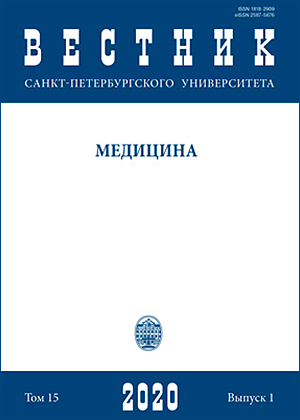The Rehabilitation of patients with facial nerve injuries after neurosurgical treatment
DOI:
https://doi.org/10.21638/spbu11.2020.105Аннотация
The facial nerve is most often, as compared with other cranial nerves, damaged due to surgical interventions. In the first place, as the cause of iatrogenic damage, is neurosurgical treatment for neoplasms of the ponto-cerebellar angle and temporal bone, brain injuries. The neuropathy of the facial nerve is the cause of neurological and cosmetic defects that have a serious traumatic effect on the patient. The psychological consequences of facial neuropathy are more important for the patient than physical damage. Paresis of mimic muscles cannot be hidden and often leads to social maladjustment, isolation and a marked reduction in the quality of life. Facial neuropathy, in most cases, is not a life-threatening condition, but it definitely changes the patient’s life. This article proposes an effective rehabilitation system, tested on 172 patients with facial nerve damage after neurosurgical treatment. The combined use of physiotherapy, massage, therapeutic gymnastics, including posture treatment with taping, during the early period of the disease, allows restoring nerve function and maintaining mimic muscles, as well as avoiding undesirable complications such as pathological synkinesis and corneal atrophy.
Ключевые слова:
neurosurgical treatment, neuropathy of the facial nerve, paresis of the facial muscles, rehabilitation
Скачивания
Библиографические ссылки
References
Загрузки
Опубликован
Как цитировать
Выпуск
Раздел
Лицензия
Статьи журнала «Вестник Санкт-Петербургского университета. Медицина» находятся в открытом доступе и распространяются в соответствии с условиями Лицензионного Договора с Санкт-Петербургским государственным университетом, который бесплатно предоставляет авторам неограниченное распространение и самостоятельное архивирование.




